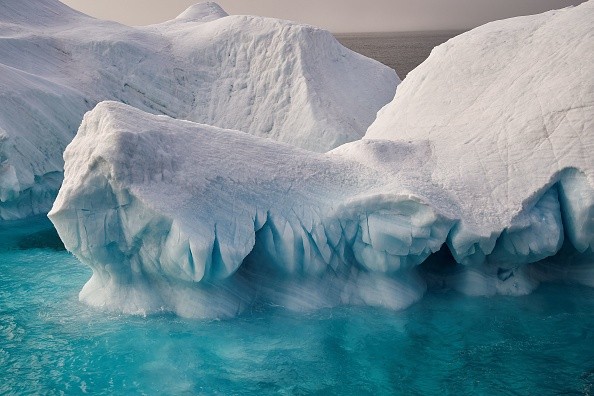Research found Tuesday reveals that rain might begin to replace snowfall in the Arctic decades earlier than previously anticipated, warning that the changes brought about by global warming could have far-reaching effects.

The Switch From Snow to Rain
The Arctic is warming very fast, melting sea ice and adding moisture to the atmosphere, which will likely lead to more precipitation, according to Phys.org.
The research published in the scientific journal Nature Communications reveals that the transition from snowfall-dominated annual precipitation to rain-dominated annual precipitation would occur one or two decades early when comparing the current forecasts to prior climate models.
Michelle McCrystall, the study's lead author, points out that changes will be more severe and occur much sooner than predicted, this will have major repercussions for life in and beyond the Arctic.
It's possible that the central Arctic may transition to a new climate by 2070, rather than 2090 as previously predicted, said McCrystall of the Canada's University of Manitoba in an interview with the New York Times.
Everything, however, is dependent on the degree of global warming.
The report claims that if global warming continues at its present pace, rain will replace snow in the Arctic by the end of the century.
Major Effects of the Switch on Arctic Ecosystem
However, the study says that limiting warming to 1.5°C - the most ambitious goal in the 2015 Paris climate agreement - could result in a snow-covered Arctic.
According to Gavin Schmidt, director of NASA's Goddard Institute for Space Studies, the findings imply that the worst consequences may be averted if countries match their declared plans to decrease emissions in accordance with the Paris agreement.
Schmidt, however, believes the data do not establish that the transition would occur sooner than planned. The transition from snow to rain, whenever it occurs, is expected to have significant consequences for the Arctic environment and beyond.
The accumulation of further rainfall on top of the existing snow cover might result in increased surface ice, which would make hunting for food by caribou and reindeer difficult.
With less snow, the Arctic loses part of its ability to reflect solar heat and light away from the Earth's surface, thus, this contributes to global warming.
How to Fight Global Warming
Biomass energy: To combat climate change, fossil fuels must be abandoned. What are your options? Solar, wind, biomass, and geothermal energy.
Energy & water efficiency: Producing clean energy is critical, but lowering our energy and water use by making use of efficient devices less expensive and equally vital.
Eco-friendly transport: Promoting public transit, carpooling, electric and hydrogen mobility may all help cut CO2 emissions and so assist in battling global climate change.
Green infrastructure: Buildings emit CO2 due to heating, air conditioning, hot water, and lighting, hence it is vital to both develop new low energy buildings and retrofit old ones.
Related Article : Massive Melting Event in Antarctica Could Result to Catastrophic Events, Expert Warns
For more news, updates about global warming and similar topics don't forget to follow Nature World News!
© 2025 NatureWorldNews.com All rights reserved. Do not reproduce without permission.





